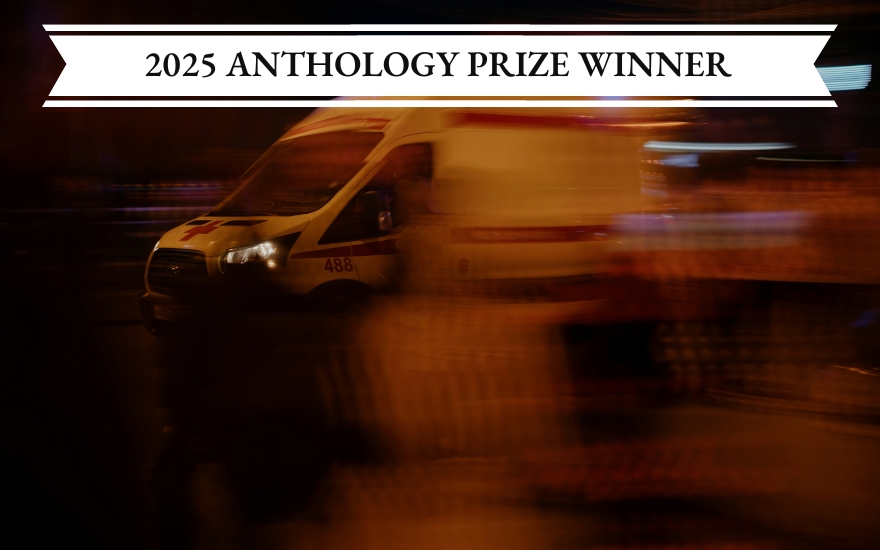She takes the empty urinal bottle from the nightstand and sets it aside quietly in a corner of the room. It was there for him to use when he couldn’t make it to the bathroom. The floor creaks beneath her as she bends over to pick up the package of adult diapers she bought last week. The package makes that sharp, plasticky sound as she tears it open, and she winces.
He stirs. “What’s this?” he says, voice cracked and small, barely able to get the breath to speak.
“You can’t keep peeing in the bottle,” she says. “I can’t clean it up anymore.”
He looks at the diaper she holds out to him, and then at her face. He doesn’t take it. She stands there and finally sets it on the nightstand, like an offering, and goes back to her side of the bed and removes her hearing aids for the night. She is trying to help him, she tells herself, but she knows that she is not physically able to care for him anymore, and wonders if she is being selfish. If he would just try to help himself, she thinks. But the thought brings with it a thick and choking gust of guilt.
These days, she cannot sleep very much; the pain in her legs is too much, so she was half-awake and watched it in slow-motion silence, against the backdrop of wafting snowflakes illuminated by a dull streetlight streaming in from outside. He tries to take the diaper off. Then he falls. She sees the fall, partially, but does not hear it. She doesn’t move for a moment. It’s like watching a plate fall—you watch it tip and you know how it will end. You try to reach out to catch it, but you only catch the edge, and somehow it seemingly accelerates its fall.
He has broken his hip, she knows. His second time. His voice, calling out for her, is sharp and frightened, and it cuts through her and slices something she thought she had already lost. She tells herself it isn’t her fault. He’s the one who got up. But she already knows how it will sound to other people. She knows he will say that he fell because she took away the bottle. She already hears the judgmental voices: maybe if you . . . you might have . . . if only . . .
When the present is too jagged and sharp to hold, she has always retreated into her distant past, but finds no solace there either. She goes back to that summer when their first child was born. The Guyanese heat was so relentless it felt solid, like something you had to push through to get anywhere. The baby had been sick for days. She asked him to take her to the doctor. He had said no, it was his day off, and he wanted to buy some rum and spend the day in the cool shade drinking. He wasn’t cruel when he said it, but his voice had been flat, like it was a fact too basic to question. So she went alone, carrying the baby through the sunlit streets, his little body heavy and limp in her arms. The doctor had looked at her with eyes that barely focused and told her to take the baby out for some air. She had stayed on the stoop of the doctor’s office all day, sitting in the heat with the baby, her dress damp against her back, watching people come and go and not knowing what to do. Finally, her mother and sister came and told her they would all go to another doctor.
The other doctor told her, hours later, what he could see right away: “If only you had brought him to me a few hours earlier, I might have been able to save him.” That sentence lodged itself inside her. She didn’t even know she was carrying it, at first, like something slipped into her pocket without her noticing. It’s still there, and it comes out in moments like this.
Now, waiting for the ambulance, she hears herself muttering something under her breath and realizes it is the doctor’s voice: maybe if you… you might have… if only…
When the ambulance arrives, she feels their eyes on her, the paramedics. She doesn’t say anything to them, but she already knows what they are thinking. When they take him away, she gets the cleaning supplies to clean the pee. She cries as she cleans. Her back locks, her legs cramp, her arthritic hands barely able to hold the cloth. When she is finally finished, she looks at the empty bottle in the corner of the room. It’s still there, after all.

